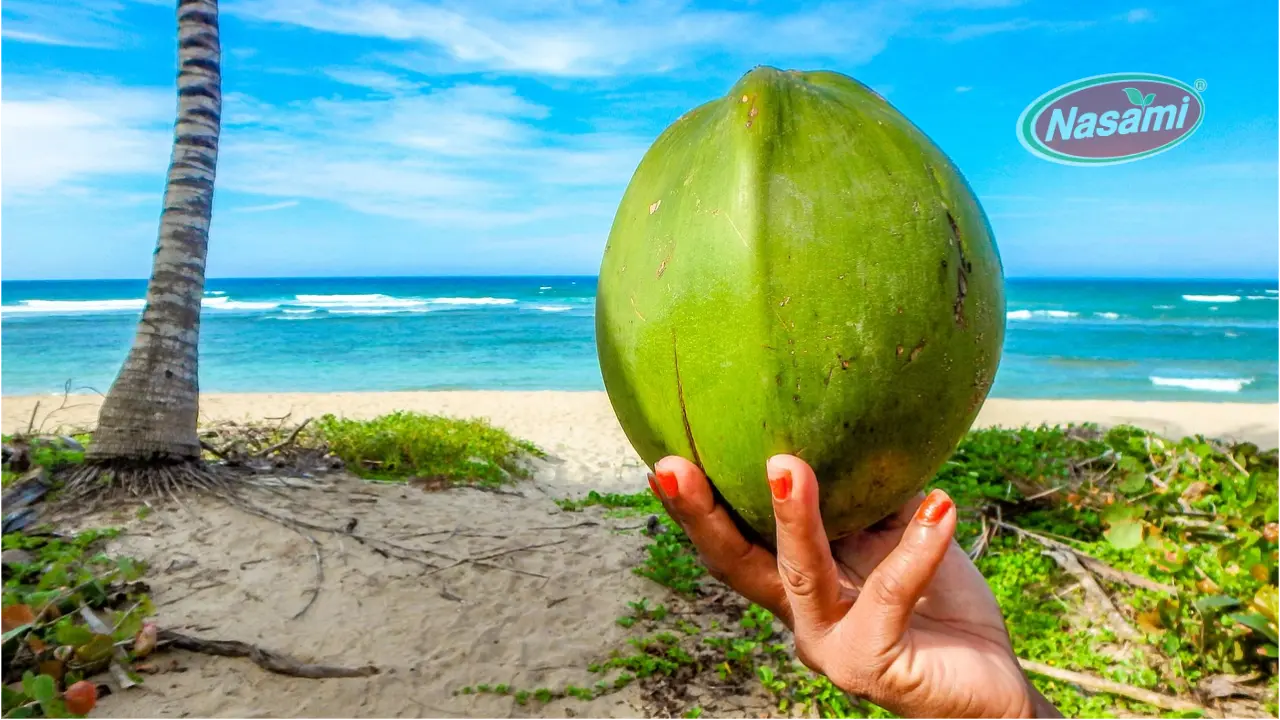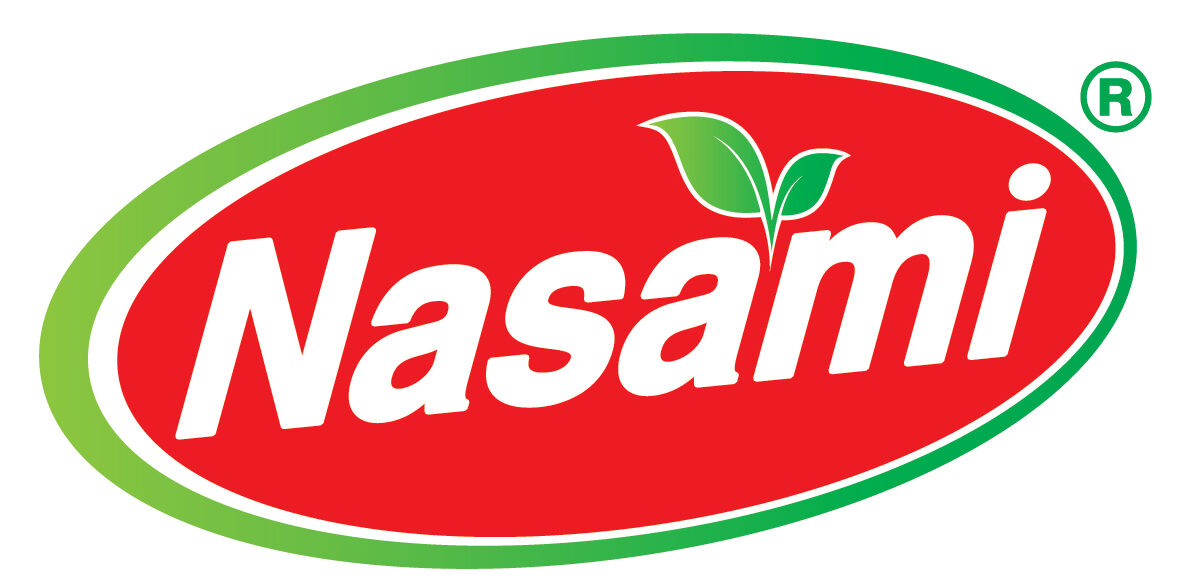In the realm of ketogenic diets, where carbohydrate restriction is paramount, the quest for suitable beverages can be challenging. Among the contenders scrutinized for their net carb content, coconut water emerges as a subject of intrigue.
Advocates of the ketogenic lifestyle often inquire: Is coconut water keto friendly? This query is not just about its carbohydrate count but also its overall nutritional profile and impact on ketosis. Let’s delve into the intricacies to determine whether this popular hydration choice aligns with the principles of a keto diet [1].
Key Takeaway – Is coconut water keto friendly
Coconut water is widely regarded as one of the healthiest natural beverages available. Regarding the critical question, “can I drink coconut water on a keto diet?” – the answer is yes, with some caveats. You can enjoy coconut water on a keto diet as long as it fits within your daily carbohydrate limits. Therefore, manage your carb intake judiciously, and you can enjoy coconut water whenever you wish while on a keto diet! Visit the Ador Health online store to purchase fresh coconut water today.
Understanding the Ketogenic Diet
The ketogenic diet has surged in popularity recently due to its promising advantages in weight management and overall health enhancement. For adherents of the keto lifestyle, careful consideration of dietary choices is paramount to sustaining ketosis. When it comes to hydration, tender coconut water has become increasingly favored among health-conscious individuals. Notably abundant in electrolytes and naturally low in sugars, tender coconut water presents a refreshing option for keto enthusiasts. Nonetheless, not all tender coconut water products are created equal; some may contain undisclosed sugars or additives that can impede progress on the ketogenic journey.
Before delving into selecting optimal tender coconut water for ketogenic adherence, it’s beneficial to grasp the foundational principles of this dietary regimen. The ketogenic diet is characterized by a low-carbohydrate, high-fat approach designed to induce ketosis, a metabolic state wherein the body predominantly burns fat for energy instead of relying on glucose from carbs. Maintaining ketosis necessitates restricting daily carbohydrate intake to approximately 20-50 grams.
What is a keto diet?
The keto diet, short for ketogenic diet, involves adhering to a low-carbohydrate, high-fat eating plan. By significantly reducing carb intake, the body enters a state called ketosis, enhancing its ability to efficiently burn fat. This metabolic state is attributed to the production of ketones in the liver, which provide energy to both the brain and body.
Moreover, keto diets are associated with lowering blood sugar and insulin levels. Prior to starting a keto diet, it is highly advisable to consult with a medical professional to mitigate potential adverse effects.
Is coconut water keto?
- Fortunately, coconut water can be included in a keto diet with careful consideration.
- Typically containing approximately 9g of carbohydrates per 1-cup serving, coconut water fits within the daily carb limit of 50g recommended for effective keto adaptation.
- Therefore, moderate consumption of coconut water is permissible while following a keto regimen – more details on this shortly.
- In essence, if your daily carbohydrate intake is 40g or less, you can safely enjoy a 1-cup serving of coconut water. However, exceeding this limit may hinder ketosis, making it advisable to abstain.

Coconut Water: A Keto-Friendly Hydration Option
Coconut water, the clear liquid found inside young, green coconuts, serves as a natural and revitalizing beverage enriched with essential electrolytes like potassium, magnesium, and sodium. These electrolytes play a vital role in maintaining hydration and supporting various bodily functions. Moreover, coconut water is inherently low in carbohydrates and devoid of fat, positioning it as an excellent choice for individuals adhering to a ketogenic diet.
However, the question arises: Does coconut water align with keto dietary principles? Despite its undeniable taste and hydrating properties, coconut water does contain carbohydrates. The carbohydrate content varies based on the coconut’s maturity. Young coconuts, yielding tender coconut water, tend to have higher sugar levels and therefore more carbohydrates. In contrast, water from mature coconuts boasts slightly lower sugar content and consequently fewer carbs. Thus, for those prioritizing minimal carbohydrate consumption on a keto regimen, it’s crucial to be mindful of the carbohydrate levels in coconut water.
Nutritional Analysis
Tender coconut water, referred to as “nariyal pani” or “elaneer,” is the translucent liquid found inside young, green coconuts. This beverage enjoys widespread popularity in tropical regions for its innate sweetness and array of health advantages. Delving into the nutritional makeup of tender coconut water illuminates why it stands as a nutritious and hydrating option.
Tender Coconut Water Nutrition Facts – Macronutrients:
Carbohydrates:
Tender coconut water boasts a modest carbohydrate content. Typically, a cup (240 ml) of tender coconut water contains approximately 9 grams of carbohydrates, derived mainly from natural sugars like glucose and fructose.
Protein:
Although tender coconut water isn’t rich in protein, it does contain a small amount. A standard cup of tender coconut water typically supplies about 2 grams of protein.
Fat:
Tender coconut water is exceptionally low in fat, with negligible amounts present. This characteristic renders it an ideal option for individuals adhering to low-fat or ketogenic dietary regimens.
Tender Coconut Water Nutrition Facts – Micronutrients:
Tender coconut water serves as a rich reservoir of electrolytes crucial for maintaining optimal hydration and supporting essential bodily functions. It is notably abundant in potassium, magnesium, and sodium. A standard cup of tender coconut water typically delivers approximately 600 mg of potassium, 60 mg of magnesium, and 252 mg of sodium. These micronutrients play pivotal roles in overall health and well-being.

Vitamin C:
Tender coconut water includes a moderate quantity of vitamin C, known for its antioxidant properties and support for immune function. A cup of tender coconut water typically supplies approximately 4% of the recommended daily intake of vitamin C. This nutrient contributes to overall health and vitality.
Other Vitamins and Minerals:
In addition to its primary nutrients, tender coconut water contains trace amounts of other essential vitamins and minerals, such as calcium, phosphorus, manganese, and various B-complex vitamins. These contribute to its overall nutritional value, supporting various aspects of health and well-being.
Tender Coconut Water Nutrition Facts – Hydration:
Electrolyte Balance:
Tender coconut water is an optimal option for restoring lost fluids and maintaining electrolyte balance, thanks to its abundant electrolyte content. It proves especially advantageous during strenuous physical exertion, elevated temperatures, or instances of dehydration due to illness. This makes it a valuable choice for promoting hydration and overall well-being.
Tender Coconut Water Nutrition Facts – Low Calorie and Cholesterol-Free:
Caloric Content:
Tender coconut water offers a lower calorie alternative compared to many sweetened beverages. A standard cup of tender coconut water contains around 46 calories, making it a favorable choice for individuals mindful of their calorie consumption. Additionally, it is free of cholesterol, further enhancing its appeal as a healthy beverage option.
Cholesterol-Free:
Tender coconut water is devoid of cholesterol, making it a heart-healthy choice for individuals prioritizing cardiovascular wellness. It’s important to note that the nutritional profile of tender coconut water can vary slightly based on factors such as coconut type, maturity, and cultivation conditions. Furthermore, packaged and processed versions may exhibit differences in nutrient content due to storage and handling procedures. Hence, it is advisable to review the nutrition label and opt for brands that offer accurate and transparent nutritional information.
Health Benefits of Tender Coconut Water
Tender coconut water, the transparent liquid found inside young, green coconuts, provides a myriad of health advantages. Beyond its refreshing taste, it is enriched with vital nutrients that promote overall health. Here, we delve into some of the primary health benefits linked to the consumption of tender coconut water.
Hydration and Electrolyte Balance:
Tender coconut water serves as a natural isotonic beverage, mirroring the electrolyte composition of human plasma. It is rich in essential electrolytes such as potassium, magnesium, and sodium, crucial for maintaining optimal hydration and electrolyte balance within the body. Regular consumption of tender coconut water aids in replenishing fluids and restoring electrolyte levels, making it an effective choice for rehydration, particularly during periods of vigorous physical exertion, hot climates, or recuperation from illness.
Improved Digestion:
Tender coconut water is enriched with bioactive enzymes like acid phosphatase, catalase, and peroxidase, which facilitate digestion and enhance nutrient absorption. These enzymes play a crucial role in breaking down food and supporting a robust digestive system. Moreover, the dietary fiber present in tender coconut water contributes to preventing constipation and promoting regular bowel movements, further bolstering digestive wellness.
Heart Health:
Tender coconut water is a heart-healthy beverage choice due to its low fat content and cholesterol-free nature. It is rich in potassium, a mineral essential for regulating blood pressure. Adequate potassium intake helps maintain healthy blood pressure levels and lowers the risk of cardiovascular diseases such as hypertension and stroke. Additionally, magnesium found in tender coconut water supports normal heart rhythm and helps prevent blood clot formation, further promoting cardiovascular wellness.
Antioxidant Support:
Tender coconut water is rich in antioxidants such as vitamin C, along with phytochemicals like cytokinins, flavonoids, and phenolic compounds. These antioxidants play a crucial role in combating oxidative stress induced by free radicals in the body. By doing so, they help lower the risk of chronic diseases, bolster immune function, and support overall cellular health.
Kidney Stone Prevention:
Incorporating tender coconut water into your diet may help prevent kidney stones. It serves as a natural diuretic, stimulating urine production and facilitating the removal of waste products and toxins from the body. The high water content and potassium levels in tender coconut water can assist in dissolving and flushing out calcium crystals, thereby lowering the likelihood of kidney stone formation.
Nutrient Boost:
Tender coconut water is packed with essential nutrients like potassium, magnesium, calcium, phosphorus, and vitamin C. These nutrients are integral to important bodily functions such as bone health, muscle function, nerve transmission, and immune system support. Adding tender coconut water to your diet offers a natural and refreshing method to enhance your nutrient intake.
Weight Management:
Tender coconut water serves as a low-calorie beverage, making it ideal for individuals focused on weight management. It offers a healthier substitute to sugary drinks, providing hydration and a mild sense of satiety without contributing excessive calories. The innate sweetness of tender coconut water can also help curb cravings for sugary flavors.
Tender Coconut Water Premix:
While coconut water is deliciously hydrating, its weight can make it impractical to carry on the go. Nasami Coconut Water offers a delightful alternative that retains the authentic taste of coconut water and is highly convenient to transport. Simply empty the sachet into a glass of water, mix well, and enjoy your refreshing drink anywhere!
Is Coconut Water Keto-Friendly?
Coconut water is rich in vitamins B and C, providing approximately 8% of the daily recommended intake. It also contains significant amounts of potassium, manganese, phosphorus, calcium, zinc, magnesium, and iron.
However, coconut water is not considered keto-friendly due to its carbohydrate content, which can contribute up to one-third of your daily net carb allowance on a strict keto diet. According to nutritional data, 100 ml of coconut water contains 8.9 grams of carbohydrates, while the keto diet typically restricts daily carb intake to 50 grams or less.
Therefore, for most people aiming to maintain ketosis, coconut water may not be suitable. The benefit of the keto diet lies in its ability to tightly control carbohydrate consumption. If you maintain a daily carb intake of under 40 grams, incorporating coconut water sparingly could be considered.

Suitable quantity of coconut water on a keto diet
We’ve established that coconut water is compatible with a keto diet due to its low carbohydrate content. However, it’s crucial to understand how much coconut water you should consume to maintain ketosis.
To align with the keto diet’s guideline of limiting carbohydrate intake to 50 grams per day, it’s recommended to consume only modest amounts of coconut water. Typically, one cup of coconut water contains approximately 9 grams of carbohydrates, which accounts for nearly one-fifth of your daily carb allowance.
Therefore, it’s advisable to limit your intake to half a cup of coconut water daily to ensure you don’t exceed your carb limit with beverages. Quality also plays a role—opt for high-quality coconut water to maximize benefits.
Coconut water offers additional advantages on the keto diet, such as its content of Medium Chain Triglycerides (MCTs), which are readily absorbed and converted into ketones by the body. This provides a swift source of energy without relying on high-carb options.
Baking/cooking with coconut water on a keto diet
Coconut water is favored among keto chefs and bakers for its low-calorie nature, serving as a substitute for dairy products in various recipes. It can be incorporated into keto-friendly creations like coconut cocktails such as Pina Coladas, as well as desserts like coconut bars, sorbets, or cakes.
FAQs
Question 1/ Is coconut water a good alternative to sugary drinks on a keto diet?
Answer: Yes, coconut water can serve as a healthier substitute for sugary drinks because of its natural sweetness and potential health advantages. However, it’s important to be mindful of its carbohydrate content and enjoy it in moderation.
Question 2/ Can I drink coconut water while fasting on a keto diet?
Answer: Coconut water contains carbohydrates, so consuming a small amount during fasting may not greatly affect your fasting regimen. However, it is advisable to seek advice from a healthcare professional or nutritionist to tailor your approach according to your individual needs.
Question 3/ Are there any keto-friendly alternatives to coconut water?
Answer: Yes, if you’re seeking keto-friendly hydration options, you can opt for plain water, infused water, unsweetened herbal tea, or sugar-free electrolyte drinks.
Question 4/ Can I drink coconut water while on a low-carb diet, even if it’s not strictly keto?
Answer: Yes, if you’re following a low-carb diet without entering ketosis, you can incorporate coconut water in moderation as part of your overall carbohydrate intake. It’s important to be mindful of portion sizes and the carbohydrate content of the coconut water you choose.
Question 5/ Can coconut water be beneficial for post-workout recovery on a keto diet?
Answer: Yes, on a keto diet, coconut water can serve as a hydrating and replenishing option for post-workout recovery. It contains electrolytes that may have been depleted during exercise. It’s important to consider its carbohydrate content and consume it in moderation.
Question 6/ Does Nasami Coconut Water keep you hydrated?
Answer: Yes, Nasami Coconut Water is designed to help replenish your hydration levels effectively. Our product contains essential electrolytes that support fluid balance in your body. Moreover, Nasami coconut water is convenient to carry and can be easily mixed with water, offering a practical option for maintaining hydration on the go.
Question 7/ How much coconut water can you have per day on keto?
Answer: On a keto diet, it is recommended to limit coconut water intake to between 1/2 and 1 cup per day. This amount typically contains between 4.5g to 9g of carbohydrates. It’s important to monitor your daily carbohydrate intake closely, as exceeding 40g of carbohydrates may disrupt ketosis. Therefore, it’s advisable to moderate your consumption of coconut water to stay within your daily carb limit on a keto diet.
Question 8/ Does coconut help ketosis?
Answer: Coconut can support ketosis by promoting ketone production through its medium-chain triglycerides (MCTs[1]). These fats are readily converted into ketones, helping to sustain the body’s state of ketosis.
Coconut water can be prepared at home or purchased from most major retailers. Here are our top recommendations for the best coconut water available!
Question 9/ What other coconut products are keto?
Answer: There are several other types of coconut products that are compatible with a keto diet:
- Coconut oil
- Coconut flour
- Coconut milk
- Coconut cream
- Shredded coconut
- Coconut butter
These products are low in carbohydrates and high in healthy fats, making them excellent choices for those following a ketogenic lifestyle.
Question 10/ Is coconut water good for weight loss?
Coconut water is believed to support weight loss due to its rich content of bioactive enzymes and potassium. These nutrients help enhance muscle function, potentially increasing calorie burning and contributing to weight loss efforts.
Question 11/ Who should not drink coconut water?
Avoid drinking coconut water if your blood potassium levels are already high. Coconut water is rich in potassium, and excessive potassium intake can potentially lead to kidney issues in severe cases.
While coconut water offers a refreshing and nutrient-rich option for hydration, its compatibility with a ketogenic diet hinges on careful consumption within carb limits. With approximately 9 grams of net carbs per cup, it can fit into a moderate or targeted ketogenic diet if managed alongside low-carb meals.
The abundance of electrolytes, vitamins, and minerals in coconut water makes it a beneficial choice for overall health, supporting hydration, digestion, heart function, and more. Ultimately, the decision to include coconut water in a keto regimen depends on individual carb tolerance and dietary goals. By understanding its nutritional composition and benefits, individuals can make informed choices that align with their ketogenic journey while enjoying the natural goodness of tender coconut water.

